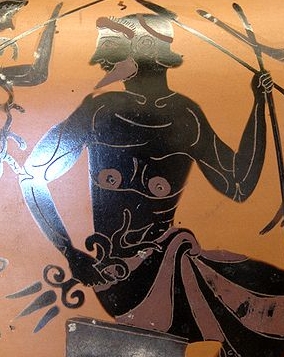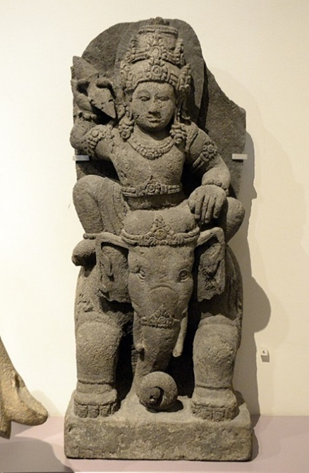Thunderer
2 mentions:
That from some wonder-couch beyond our air
Risen in a wide morning of the gods
Thou drov’st thy horses from the Thunderer’s worlds.
— Book 5 Canto 3
Give not to darkness and to death thy sun,
Achieve thy wisdom’s hidden firm decree
And the mandate of thy secret world-wide love.
— Book 11 Canto 1
‘Thunderer’ is an epithet of Zeus. As the gods belong to the overmind plane, the word ‘Thunderer’ symbolises the highest level of this plane. The Cyclops of the first generation, the symbols of divine omniscience and the brothers of the Titans, gave Zeus the thunder and the dazzling thunderbolt and lightning in gratitude for freeing them from the Tartarus where their father Ouranos had confined them.
These attributes of Zeus – thunder, lightning, and thunderbolt – are the symbols of the power of the forces of the creation world, the supramental plane, of the instantaneousness of the action of the light-consciousness of Truth and of its absolute power when manifested through the highest level of the overmind.
The word ‘Thunderer’ thus refers to Zeus holding the ’thunderbolt’, the symbol that brings together the three constituent elements, that stands for the light of Truth/Consciousness, power, and immediacy.
Zeus holding the thunderbolt BnF Museum. Public domain
The same image appears in the Rigveda. It is vajra, the weapon of Indra, the chief of the devas. Indra uses the vajra to kill the sinful and the ignorant.
Indra holding the Vajra Osama S M Amin FRCP(Glasg) CC-BY-SA-4.0

